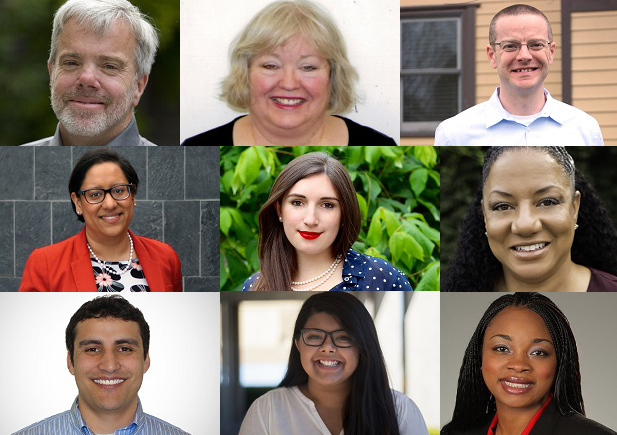Six national policy and research organizations will share $6.5 million in grants from the Bill & Melinda Gates Foundation as part of the foundation’s ongoing efforts to boost the number of low-income and minority students who complete college.
The grants are meant to enable the organizations to study why so many students drop out of college and to propose new policies and practices to remedy the problem.
The grants were announced this week along with the release of a study of the issue titled “Diplomas and Dropouts: Which Colleges Actually Graduate Their Students and Which Don’t.” The study — done by one of the grantees, the American Enterprise Institute — found that less than 60 percent of new students graduated from four-year institutions within six years. The study did not deal with completion rates at community colleges, although other reports, such as Cost, Commitment, and Attainment in Higher Education from Jobs for the Future, have indicated that community college completion rates are similarly low.
Amy Ellen Duke-Benfield, senior policy analyst at the Center for Law and Social Policy (CLASP), another one of the grantees, said it’s important for a greater emphasis to be put on success in college, not just access to college.
“Opening the college doors wide so far has been a bit of an empty promise because we haven’t done a good job of ensuring that students may get to the other side on graduation day and a good job,” Duke-Benfiend said. “Too many students are falling through the cracks.”
But not everyone agrees that there is a need for some sort of No Child Left Behind-type initiative for young adults who are struggling to graduate from college.
Among the skeptics is George Leef, vice president of research for John William Pope Center for Higher Education Policy.
“Even at the least selective schools, some students manage to graduate,” Leef said. “Unselective schools have low levels of academic rigor to match the ability of their students.
“That’s why I’m inclined to think that most often the problem is one of motivation,” Leef continued. “Most students come into college with the expectation that it will be as easy as high school and when they find out that it’s usually at least somewhat more demanding, they quit.”
Duke-Benfield counters that many students have been ill-prepared by K-12 schools and would benefit from the extra academic support it takes to earn a degree.
Among other things, she says CLASP will be examining weaknesses in remedial or developmental education and pushing for policy and best practices that help students who are academically struggling get through college.
Here is a list of all of the grantees and a synopsis of their projects:
American Enterprise Institute: $1.25 million to launch a research project designed to “encourage a national conversation about postsecondary accountability.” The project will include commissioned papers, conferences, and a book about the topic.
The Center for American Progress (CAP): $800,000 to study and report on various college completion topics that will result in policy recommendations meant to “bring coherence to a fractured national system of higher education institutions, give low-income students the targeted assistance they need to complete their educations, and bring accountability to institutions that are receiving ever more public money but graduating fewer and fewer of their students.”
Center for Law and Social Policy (CLASP): $1.5 million to support a new Center on Postsecondary and Economic Success within the organization. The Center will “promote federal and state policy innovation to help low-income students, including working students, out-of-school youth, and other nontraditional students earn marketable postsecondary credentials through research, analysis, educational activities, and technical assistance to states and anti-poverty organizations.”
The College Board: $675,000 to create the Center for Innovation and Advocacy. The center will “study policies and programs that increase college access and success, with a focus on increasing college completion among traditionally underrepresented students.”
Excelencia in Education: $600,000 to “raise awareness about the significance of accelerating Latino college completion rates … through a new campaign, Enhancing America’s Future.” The campaign will be developed through meetings with postsecondary policy leaders, benchmarking national and state level Latino college degree completion, and an outcomes-driven focus on dissemination of promising practices.
Institute for Higher Education Policy: $1.58 million over three years to support research to improve policies related to academic excellence and degree attainment. The project entails publishing reports, issue briefs, and fact sheets as well as connecting that research to policy and practice.




























